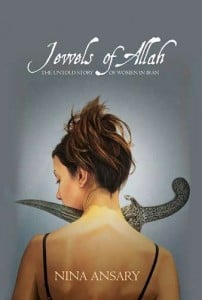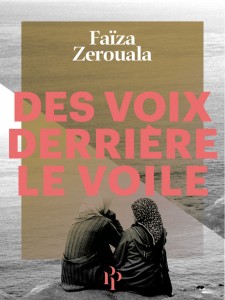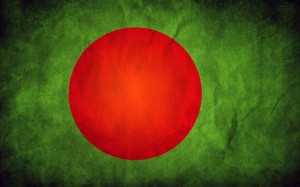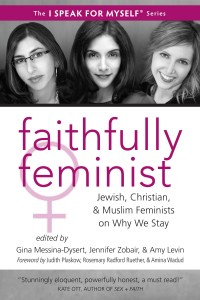A couple of weeks ago Kecia Ali, Juliane Hammer, and Laury Silvers presented the e-book A Jihad for Justice: Honoring the Work and Life of Amina Wadud (the link takes you to a full PDF of the book). The e-book is meant to be a Festschrift, a German word for “a collection of academic essays by students of a significant scholar upon [her/his] retirement,” as described in the introduction.
The pieces in this book are largely written by academics, yet it comprises a great and honest effort not only to celebrate Dr. Wadud’s life, but also to make room within the academy for personal experiences. While some of the pieces remain highly academic, with scholarly concepts and references to very specific sources, others are quite accessible in that they relate to daily life and reflect personal experiences.

The e-book contains six sections, titled Readings, Inspirations, Continuations, Imprints, Encounters and Embraces respectively. It also features a list of Wadud’s publications and interviews, as well as a list of publications by scholars that have engaged with Wadud’s work. The writers represent a great diversity of mostly scholars and activists in progressive Islamic thought. Among the authors we find Michael Muhammad Knight, Debra Majeed, M. Laure Rodríguez Quiroga, El-Farouk Khaki and Sa’diyya Shaikh.
One of the things that I liked most about this book is that it does not only revises Dr. Wadud’s contributions to the academic world and Islamic thought, but it also gives us a glimpse into her own personal life and her multiple identities as an African-American Muslim woman. In this book we get to know Dr. Wadud as the daughter of a Methodist minister originally named Mary Teasley (before her shahada in 1972), as a convert to Islam, as a single mother, as a scholar, as an imama, as an African-American, and as a progressive Muslim woman with an ambivalent relationship with feminism.
In addition to that, most of the writings in this e-book are permeated with the personal experiences of these scholars and their sometimes troubled relationship with Islam and feminism. What makes the personal stories compelling is that first, we can see that underneath the scholar there is an actual person, and next, we can see the different paradigms that scholars of Islam, from theologians to lawyers, have struggled with.
All the pieces go back to the impact that Dr. Wadud has had in Muslim scholarship, her role as an activist, and her overall courage in presenting contemporary Muslims with the issue of gender relations in Islam in recent years. In some instances, the writers present Dr. Wadud and her book Qur’an and Woman as the light at the end of the tunnel in answering hesitations and addressing concerns regarding gender in Islam. Among my favorite pieces I find the one by Debra Majeed and the one by Zainah Anwar and Rose Ismail. Yet, I must say that I was really drawn by the pieces written by Michael Muhammad Knight and by Amanullah De Sondy respectively.
In the first essay, Knight tells us about his spiritual reaction to Amina Wadud’s mixed congregation prayer. He later compares Dr. Wadud to Malcom X in their respective struggles for gender and racial equality. Beyond that, Knight brings up the whole question of unity in the community and the dichotomy of progressive vs. conservative Muslims. He makes an important point in explaining Dr. Wadud’s headscarf (which she wears depending on the context) and concludes that categorizations may not be all black and white. Knight ends by saying:
“While some of us remained unsure whether to surrender to pressures for false unity under a monolithic, unchanging and unchangeable Islam or an equally false unity under a shallow pluralism on Western terms, Amina Wadud helped us towards a real unity, a unity that could embrace both courage and respect.”
In the second piece, De Sondy’s writing stands out among pieces that deal mainly with women’s equality or gender as a whole by shifting the paradigm and asking, what about masculinity? De Sondy’s piece does not only bring masculinity to the table, but it also asserts Dr. Wadud’s influence in talking about more than just “women’s issues.” His piece calls to “develop a wider understanding of what it is to talk of men and women.”
All in all, the book represents a very personal and sincere effort to ask, what does the work of Amina Wadud mean for me? I especially appreciate that in this quest most of the writers have decided to step out of the academy for a second in order to write beautiful pieces accompanied with poems and blessings.
And as far as Amina Wadud is concerned, although there are things that as readers or Muslim practitioners we may agree or disagree with, she has made a tremendous impact on the way we look at gender issues, progressive Islam and perhaps practice in general. Thus, I take this opportunity to wish Dr. Wadud the best in her future academic and liturgical endeavours.
All of us at Muslimah Media Watch were deeply saddened last week to learn about the death of the daughter of Kecia Ali, one of the editors of this volume. All of our prayers are with her, and we pray that her daughter Shaira is resting in peace and love. We offer our condolences to Dr. Ali and to the many family members and friends who are grieving right now, and we hope that Allah will give them strength. There is a beautiful tribute written by Omid Safi here.













